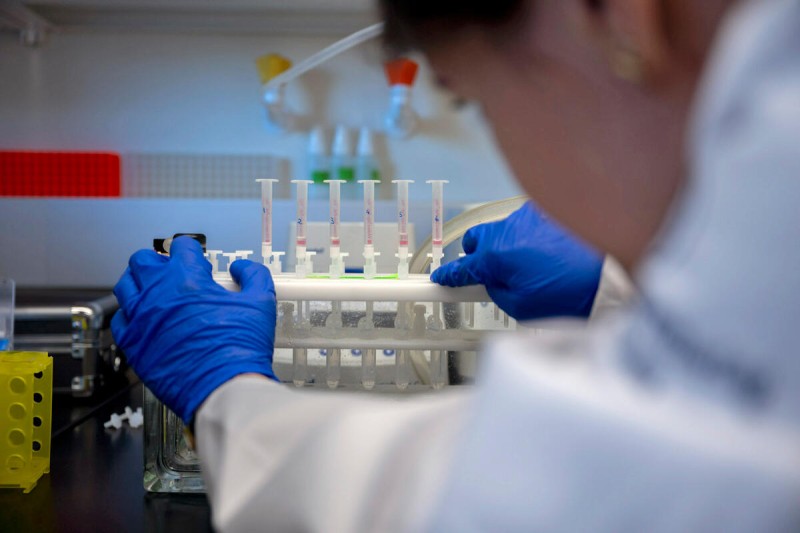
Part 1: Rare Salivary Cancers
Memorial Sloan Kettering Cancer Center (MSK) has a comprehensive and integrated head and neck cancer program with dedicated resources and specialists who treat patients with rare salivary, thyroid, non-melanoma skin, and oral cavity cancers. Clinical disease management teams partner frequently with scientists, tapping into biological insights that inform the development of novel therapeutics tested in investigator-initiated clinical trials.
“We have a true translational program focused on bench-to-bedside approaches that allow us to understand the clinical efficacy of new treatments and, at the same time, better understand tumor biology and use those insights to drive subsequent innovations,” said MSK head and neck oncologist Alan Ho, MD, PhD. “The breadth of our expertise and integrated collaboration means we can provide patients with access to cutting-edge treatments not available elsewhere. Over the past decade, MSK has conducted dozens of clinical trials that have led to changes in the standard of care for patients with rare subtypes of head and neck cancers.”
This three-part series summarizes MSK’s recent advances in clinical research and novel treatment approaches for rare head and neck cancers as follows:
- Part 1: Rare Salivary Cancers (see below)
- Part 2: Rare Thyroid Cancers
- Part 3: Rare Skin and Oral Cavity Cancers of the Head and Neck
Rational Immunotherapy Trial Generates New Insights into Salivary Gland Cancers
Salivary gland cancers are lethal and rare, comprising about 5% of all head and neck cancers. (1) The World Health Organization recognizes 24 subtypes, including adenoid cystic carcinoma (ACC) and salivary duct carcinoma (SDC). Currently, there are no standard treatment options for recurrent or distant metastasis, which are considered incurable. (2)
MSK head and neck physician-scientists recently conducted a clinical trial for patients with salivary gland cancers, not only to evaluate the clinical endpoints of a biologically rational approach but also as an opportunity to study how these tumors change in response to intervention to reveal potential vulnerabilities for future drug development.
The phase 2 clinical trial (NCT03172624) evaluated nivolumab and ipilimumab in patients with recurrent or metastatic salivary gland cancers, given that concurrent blockade of the PD-1 and CTLA-4 checkpoints has achieved notable objective response rates in other solid tumors. The trial included 64 patients in two cohorts grouped according to histology: 32 patients with ACC and 32 patients with other salivary gland cancers.
The results, published recently in Nature Medicine, (3) showed that nivolumab plus ipilimumab had limited efficacy in ACC, with infrequent exceptional responses. However, it demonstrated promise in non-ACC salivary gland cancers, particularly salivary duct carcinomas. Specifically, the primary endpoint was four or more objective responses. While there were only two in the ACC group, there were five in the non-ACC group. Treatment-related adverse events grades 3 and higher occurred in 38% of patients across both cohorts. Progression-free survival was 4.4 months and 2.2 months for the ACC and non-ACC groups, respectively. (3)
While these results showed low success rates overall, that’s only part of the story. Dr. Ho’s co-senior author was head and neck surgeon Luc Morris, MD, MSc, FACS, a physician-scientist who studies how genetic features of cancer cells lead to tumor development, immune system evasion, and aggressive tumor behavior in the Luc Morris Lab. He and his lab team performed whole-exome, RNA, and T cell receptor sequencing (TCR) on pre-treatment and on-treatment tumors and immune cell flow cytometry and TCR on peripheral blood samples at serial time points. (3)
They found some responding ACCs harbored specific alterations, such as MYB-NFIB fusions, that are promising immunotherapy targets for further development. They also discovered responding tumors had a significantly higher infiltration of T cells before treatment, suggesting this metric could be a valuable biomarker for identifying salivary gland cancers more likely to respond to concurrent PD-1 and CTLA-4 checkpoint blockade. (3)
“Testing all potential immunotherapy combinations is not feasible for a rare disease like salivary gland cancer,” said Dr. Ho, principal investigator of the trial. “Instead, evaluating responses to rational treatment strategies and studying the biologic mechanisms driving tumor susceptibility and resistance give us the best chance to develop more effective therapeutic strategies for patients.”
MSK pioneered some of the first rational trials for salivary gland cancers and has conducted more than eight trials for patients with ACC, several of which have been expanded to include other types of salivary gland cancers.
Learn more about MSK clinical trials for patients with rare salivary gland cancers, including the following:
- A Phase 2 Study of Darolutamide in Combination with Leuprolide Acetate in Hormone-Therapy Naive Recurrent and/or Metastatic Androgen Receptor (AR) Positive Salivary Gland Cancer (National Cancer Institute (NCI) multisite trial led by MSK; NCT05669664)
- A Phase 2 Study of Lenvatinib Plus Pembrolizumab in Patients with Progressive, Recurrent/Metastatic Adenoid Cystic Carcinoma and Other Salivary Gland Cancers (NCT04209660)
- A Phase 2 Study of Ado-Trastuzumab Emtansine Compared to the Usual Treatment for Advanced HER-2 Positive Salivary Gland Cancer (NCI multisite trial led by MSK; NCT05408845)
- A Phase 2 Study of Adjuvant Ado-trastuzumab Emtansine (T-DM1) in HER2-positive Salivary Gland Carcinomas (NCT04620187)
Access disclosures for Dr. Ho.
